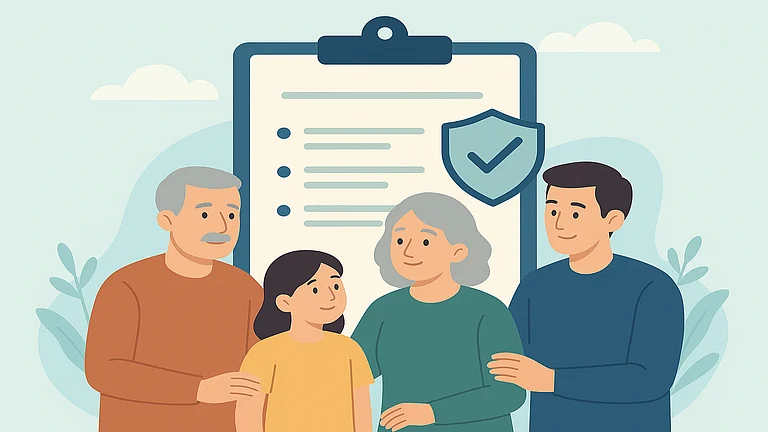DoPPW mandates annual life certificate submissions for enhanced family pension.
New rules aim to prevent misuse and overpayment of pension funds.
Regulatory changes address gaps in the pension disbursement process.
Life Certificate Submission Mandatory For Both Parents Receiving Enhanced Family Pension, Says DoPPW
The DoPPW, in to remove ambiguity and streamline the disbursement of enhanced family pension, has made life certificate submission every year mandatory for both parents
To streamline family pension payment and to prevent misuse of the enhanced family pension benefits, the Department of Pension and Pensioners’ Welfare (DoPPW) has issued a mandate, according to which, both parents will have to submit life certificates to avail of the enhanced rate of family pension benefit. Earlier, there was no clause to submit a life certificate to avail of the enhanced rate of family pension, and this loophole resulted in overpayment.
As DoPPW has been receiving requests for clarification in this regard of the rules under the Central Civil Services (Extraordinary Pension) Rules, 1939 (specifically Categories 'D' & 'E') and Central Civil Services (Extraordinary Pension) Rules, 2023, (Categories 'C' & 'D'), it issued clarification through an office memorandum (OM) dated October 28, 2025, addressing the ambiguities. It not only clarified the rules for eligibility and the payment process for enhanced family pension benefits payable to parents, but also made life certificate submission mandatory, moving forward.
Structural Issue In The Enhanced Family Pension
The core issue lies in the structure of enhanced family pension payments, which is tied to whether one or both parents of the deceased government employee is alive.
According to the rules, the enhanced pension rate must reduce upon the death of one of the parents, but there was no mechanism to check the incidence of death. This lapse resulted in continued payment of the enhanced family pension at 75 per cent even after the death of one parent in some cases, resulting in overpayment and financial loss to the government.
Here are the rules for which clarifications were sought.
Central Civil Services (Extraordinary Pension) Rules, 1939
According to the Rule (2)(4) of Schedule-II of the CCS (EOP) Rules, 1939, applicable for Categories 'D' and 'E', “When the Government servant dies as a bachelor or as a widower without children, dependent pension shall be admissible to the parents without reference to pecuniary circumstances, at the rate of 75 per cent of the pay last drawn by the deceased government servant for both parents and at the rate of 60 per cent of pay last drawn by the deceased government servant for a single parent and on the death of one parent dependent, pension at the latter rate shall be admissible to the surviving parent.”
Central Civil Services (Extraordinary Pension) Rules, 2023
Family pension under Rule 12 (5) of CCS (EOP) Rules, 2023 for Category 'C and Category 'D', states that “where a deceased Government servant is not survived by a widow or widower or a child eligible for family pension or if the widow or widower and all children cease to be eligible for family pension, family pension shall be payable to parents for life under Category 'C' and Category 'D', at the rate of seventy five per cent of the family pension entitled to a widow if both parents are alive and at the rate of sixty per cent of the family pension entitled to a widow if only one parent is alive.”
The rule further stipulates that wherever a family pension is to be paid to the parents, it will first be payable to the mother and then to the father of the deceased Government servant.
So, to address this procedural gap, DoPPW has now made it mandatory for both parents to submit their life certificates every year.


